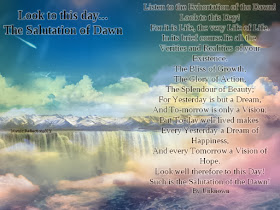One of the most motivating hadith about Akhlaaq is in Tirmidhi :
“Among the heaviest things for a man in the scales on the day of Qiyamah, is his Good Character…”
Making Good Character a part of daee’s Character, Allah reminds the Prophet (pbuh) in Surah Imran verse 159…..
“And by the Mercy of Allah, you dealt with them gently. And had you been severe and harsh-hearted, they would have broken away from about you; so pass over (their faults), and ask (Allah’s) Forgiveness for them; and consult them in the affairs. Then when you have taken a decision, put your trust in Allah, certainly, Allah loves those who put their trust (in Him).“
In the above Qur’anic verse there are few lessons for those who want to raise the standard of their character.
1. Dealing gently is an important aspect of Akhlaaq:
The sahih hadith in Abu Dawood says :
“Aisha ! Allah gives for goodness what he does not give for harshness.. If goodness is removed from something it makes it very bad and if goodness is added to something, it beautifies it.”
2. If you are able to deal gently then know that it is a mercy from Allah: A beautiful hadith to motivate you to be merciful to others: Ifyou show mercy towards those on the earth, the one in the heaven will show mercy towards you.
3. Over look the faults of people : Allah declares it a virtue of those who are Mohsinoon.. Those who spend [in Allah's Cause - deeds of charity, alms, etc.] in prosperity and in adversity, who repress anger, and who pardon men; verily, Allah loves Al-Muhsinun (the good-doers). Surah al e Imran verse 134. Over .looking the faults of people is highly recommended in Islam.It generates respect and love for each other. It reflects the immense patience of the pardoner. Read the humble victorious march of the Prophet (sallahu alayhi wa salaam) when he entered Makkah. He delcared a general amensty for all.
4. Ask forgiveness for the people who err : Besides forgiving, one should also ask Allah to forgive his Muslim brother. The Prophet himself prayed for those three sahaba who missed out Tabuk and committed a mistake. It is a sunnah to pray for the forgiveness of your dead Musilm brother. Besides, the Qur’an also emphasies the Believers to pray for the forgiveness for parents , after all, our parents deserves the most from our best conduct.
5. Consult people : Though the Prophet himself received revelation yet he consulted his companions in many issues. Consulting people gives a boost to the the collective efforts which is essential for the success of a team.
6. Put your trust in Allah. The ayah ends with an assuranc : Allah loves those who trust him…. But naturally if Allah loves you it means it is a certificate of merit to your character.
There are many things which remain essential component of a good character. Some of these qualities are mentioned directly in Surah Maryam
1. (Jesus pbuh said ): He (Allah) Has enjoined on me salah and charity as long as I live, he has made me kind to my mother and not overbearing or miserable verse 31 -32
2. And mention Ibrahim a.s. He was a man of truth…. verse 41
3. And mention in the book Moses… He was mukhlisan.. (a cystal clear hearted person doing good for Allah only) verse 51
4. And mention in the book Is’mail (alayhis salam).. He was true to what he promised… verse 54
When ever you come across the story of prophets in the Qur’an don’t forget to read what the particular paragraph speaks about their noble characters.. You will inshallah find a lot of things to learn from them..
Author : Nisaar Nadiadwala writes and speaks on socio-educational issues from Islamice perspective. He can be reached at nisaar_yusuf@yahoo.com






















.jpg)






























